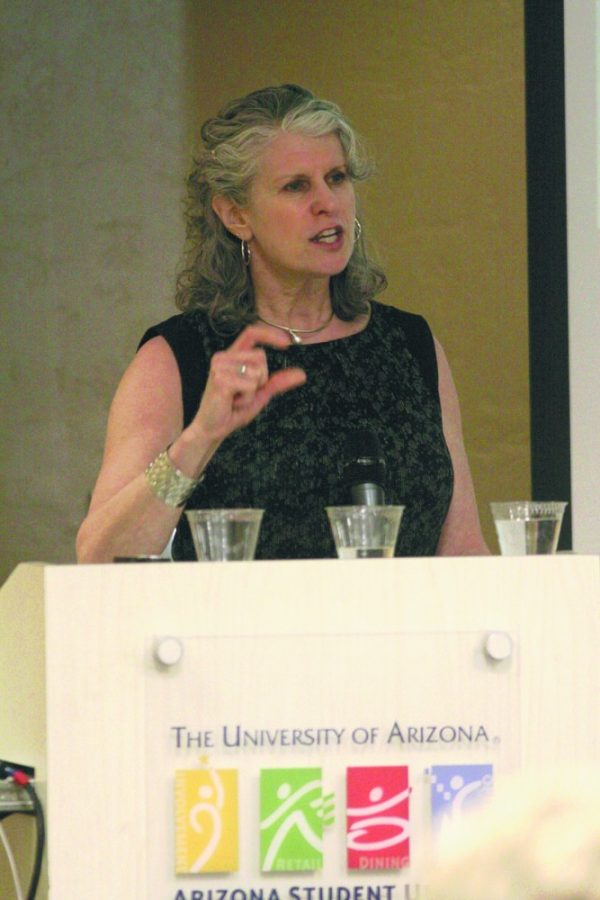Faculty members learned how to improve the student learning experience at the UA during the annual Assessment Showcase on Tuesday.
Using findings from a yearlong assessment, Jo Beld, a political science professor and the director of evaluation and assessment at St. Olaf College in Northfield, Minn., addressed 75 faculty members about how to increase student productivity. She asked faculty members to look critically in their field to best challenge students, and gave pointers to help them improve teaching techniques.
“Higher education has been constantly changing and it is important to keep up with the change and take risks,” Beld said.
An approach to assessment, Beld said, is “beginning with the end in mind.” Faculty members should create lesson plans around what students already know and what they might want to know, and from there create a plan that fosters student improvement, she said.
“We get so focused on what the average students are doing, but we also need to look at the variation among all students,” she added. “It’s important to not only look at the typical average student but to also look at different student’s experience and what their outcome is.”
Four UA faculty members gave speeches and presentations in addition to Beld. They touched on how they manage their schools and departments, as well as what approaches they plan on using to help improve assessment results.
Angela Baldasare, director of UA Manager-Divisional Assessment, focused on how to unify the student experience in order to improve the curriculum and move the university forward.
“As time goes on, we are not going to see the end of the assessment.” Baldasare said. “What we are going to see is more and more conversion of student learning outcome in academics.”
Through students’ past experiences, the UA’s School of Journalism has been able to improve and assess its students more effectively, said David Cuillier, the school’s director.
“We have learned a lot over the time and we’ve gotten really good at failing and we just failed left and right, but we are learning from our failure and we haven’t given up,” Cuillier said. “We keep on trying and modifying until we get it right.”
Assessments show where improvements have been made successfully and point out where changes need to occur, said Debra Tomanek, assistant vice provost of the Office of Instruction and Assessment.
“We don’t want to put our students through a degree program and have them pop out from the other side,” Tomanek said. “We want to assess what they understand and what they are doing.”









